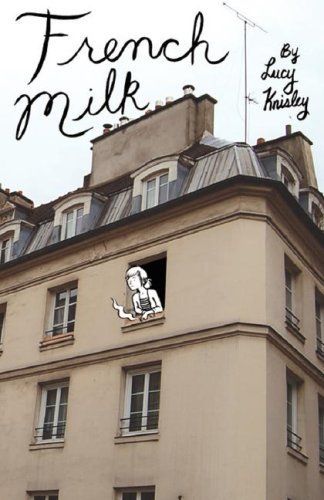
French Milk
This comic journal details a mother and daughters month-long stay in a small apartment in Paris. Lucy is grappling with the onslaught of adulthood. Her mother faces turning 50. They are both dealing with their shifting relationship as they navigate Paris with halting French and dog-eared guidebooks.
Reviews
Andrea Mack@wisdomcheck
Jeannette Ordas@kickpleat
Maggie Gordon@maggieg
Emily Burns@emilymelissabee
Morgan Thomas@moalthom91
Michelle@jackalope
aem@anaees
Bee @izziewithay
Jessie@jraelew
Jamie Mitchell@jamesinasweater
jordan Ariel johnson@deafreader18
Andrea Henderson@arhenderson5
Hayley 📖🌈💜🌸@ohthathayley
Anna Pinto@ladyars